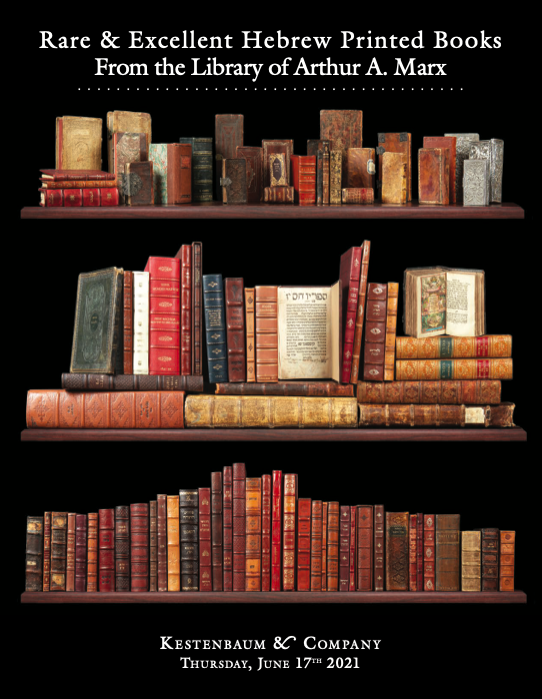Sha’ar Naphtali [liturgical poems].

Auction 94 |
Thursday, June 17th,
2021 at 11:00am
Rare & Excellent Hebrew Printed Books: From the Library of Arthur A. Marx
Lot 234
KATZ, NAPHTALI.
Sha’ar Naphtali [liturgical poems].
Minsk: (Simchah Zimel ben Yechezkel) 1810
Est: $1,000 - $1,500
PRICE REALIZED $650
“Naftali ben Isaac Katz HaKohen (1645–1719) was born in Stepan (Volhynia), where his father was rabbi. In his youth he was taken captive by the Tatars but managed to escape. He succeeded his father as Av Beth Din of Stepan and then served as rabbi of Ostrow (1680–89), Posen (1690–1704), and Frankfurt on the Main (1704–11). In the latter year a fire broke out in his house, destroying the whole Jewish quarter of Frankfurt. After he had been maliciously charged with preventing the extinguishing of the fire because he wanted to test his amulets – in the use of which he was expert – he was imprisoned and compelled to resign his post. He went to Prague, staying in the house of R. David Oppenheim, where he met Nehemiah Ḥayon and even gave approbation to his book Oz L’Elo-him (Berlin, 1713). From 1713 to 1715 he lived in Breslau, where together with the Chacham Tzvi he excommunicated Ḥayon after realizing his true character. In 1715, after King Augustus of Poland had rejected his application to be restored to his post as rabbi of Posen, he returned to Ostrow where his son Bezalel was rabbi. While journeying to Ereẓ Israel he was taken ill in Constantinople and died there.
R. Naphtali Katz was one of the important halachic authorities of his generation and one of the great kabbalists of Poland. His image persisted in the memory of the people, and many legends and wondrous tales about him circulated for many generations. He conducted his rabbinate high-handedly and as a result met much opposition from the leaders of the communities, which was apparently the cause of his frequent wanderings. Despite this he had a sensitive soul which found expression in his poems, piyyutim, and prayers. His ethical will (1729) contains profound thoughts and moral instruction and some see in it one of the first sparks of practical Chasidism.” www.jewishvirtuallibrary.org/katz-naphtali-ben-isaac.
